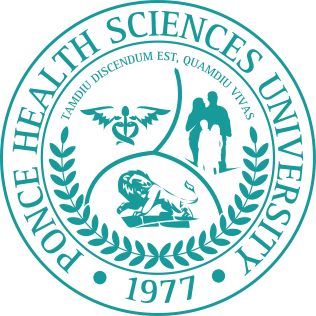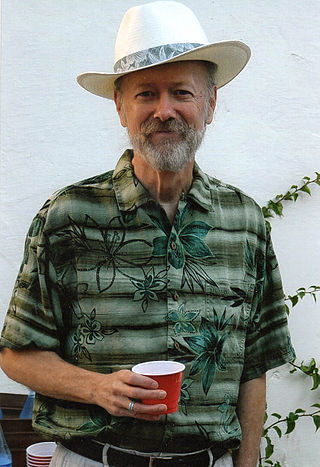Related Research Articles
Alvaro Pascual-Leone is a Spanish-American Professor of Neurology at Harvard Medical School, with which he has been affiliated since 1997. He is currently a Senior Scientist at the Hinda and Arthur Marcus Institute for Aging Research at Hebrew SeniorLife. He was previously the Director of the Berenson-Allen Center for Noninvasive Brain Stimulation and Program Director of the Harvard-Thorndike Clinical Research Center of the Beth Israel Deaconess Medical Center in Boston.

The Max Planck Society for the Advancement of Science is a formally independent non-governmental and non-profit association of German research institutes. Founded in 1911 as the Kaiser Wilhelm Society, it was renamed to the Max Planck Society in 1948 in honor of its former president, theoretical physicist Max Planck. The society is funded by the federal and state governments of Germany.
The University of Texas Southwestern Medical Center is a public academic health science center in Dallas, Texas. With approximately 23,000 employees, more than 3,000 full-time faculty, and nearly 4 million outpatient visits per year, UT Southwestern is the largest medical school in the University of Texas System and state of Texas.

The Ponce Health Sciences University (PHSU), formerly Ponce School of Medicine & Health Sciences, is a private, for-profit university in Ponce, Puerto Rico and St. Louis, Missouri. It awards graduate degrees in Medicine (MD), Clinical Psychology (PsyD and PhD), Biomedical Sciences (PhD), Medical Sciences (MS), and Public Health (MPH and DrPH). The university has 360 students in its medical school and, as of 11 February 2019, was authorized to increase the student body at the medical school to 600 which, when fully in place, will make it the largest private medical school in Puerto Rico and one of the largest under the American flag.
Emery Neal Brown is an American statistician, neuroscientist, and anesthesiologist. He is the Warren M. Zapol Professor of Anesthesia at Harvard Medical School and at Massachusetts General Hospital (MGH), and a practicing anesthesiologist at MGH. At MIT he is the Edward Hood Taplin Professor of Medical Engineering and professor of computational neuroscience, the associate director of the Institute for Medical Engineering and Science, and the Director of the Harvard–MIT Program in Health Sciences and Technology.

The Feinstein Institutes for Medical Research in Manhasset, Nassau County, New York, United States, on Long Island, constitute the research arm of Northwell Health. Feinstein is home to 50 research labs, 2,500 clinical research studies, and 5,000 professional and support staff. Feinstein scientists conduct research in molecular medicine, genetics, cancer, brain research, mental health, autoimmunity and bioelectronic medicine, among others. Feinstein is the laboratory and faculty home of the Elmezzi Graduate School of Molecular Medicine. Students without an MD degree may earn a PhD in molecular medicine via the Zucker School of Medicine, as part of the medical school's MD/PhD or PhD programs.

Kenneth L. Davis is chief executive officer of the Mount Sinai Health System in New York City, an American author and medical researcher who developed the Alzheimer's Disease Assessment Scale, the most widely used tool to test the efficacy of treatments for Alzheimer's disease designed specifically to evaluate the severity of cognitive and noncognitive behavioral dysfunctions characteristic to persons with Alzheimer's disease. His research led to four of the first five FDA-approved drugs for Alzheimer's.

Matthias Werner Hentze is a German scientist. He is the director of the European Molecular Biology Laboratory (EMBL), co-director of the Molecular Medicine Partnership Unit between EMBL and Heidelberg University, and Professor of Molecular Medicine at Heidelberg University.

Gladstone Institutes is an independent, non-profit biomedical research organization whose focus is to better understand, prevent, treat and cure cardiovascular, viral and neurological conditions such as heart failure, HIV/AIDS and Alzheimer's disease. Its researchers study these diseases using techniques of basic and translational science. Another focus at Gladstone is building on the development of induced pluripotent stem cell technology by one of its investigators, 2012 Nobel Laureate Shinya Yamanaka, to improve drug discovery, personalized medicine and tissue regeneration.

Joaquin M. Fuster is a Spanish neuroscientist whose research has made fundamental contributions to the understanding of the neural structures underlying cognition and behavior. His several books and hundreds of papers, particularly on memory and the prefrontal cortex, are widely cited.
Glyn Lewis is a British professor of psychiatric epidemiology and the current head of the Division of Psychiatry at University College London

Stephan Tanneberger was a German oncologist and chemist who held leading positions in cancer research and therapy in the German Democratic Republic (GDR), serving as director of the Zentralinstitut für Krebsforschung of the Akademie der Wissenschaften der DDR from 1974 until 1990. He left Germany in 1991 to work in the field of palliative care for cancer patients in Italy as well as in various countries in the Third World. In 2005, he founded a Center for Peace Work in Anklam in northeast Germany.

Geoffrey S. F. Ling is a medical doctor who retired from the United States Army as a colonel and was the CEO of On Demand Pharmaceuticals. He served as the founding director of the Defense Advanced Research Projects Agency (DARPA) Biological Technologies Office from 2014 until 2016. He was considered to be the "US Army's premier subject matter expert on traumatic brain injury (TBI)", and was for years the only neuro-intensive care specialist in the US military.

Paul H. Patterson was a neuroscientist and the Anne P. and Benjamin F. Biaggini Professor of Biological Sciences at the California Institute of Technology.
Klaus-Robert Müller is a German computer scientist and physicist, most noted for his work in machine learning and brain–computer interfaces.
Gordon B. Mills is the Wayne and Julie Drinkward Endowed Chair in Precision Oncology, Director of Precision Oncology, Director of SMMART Trials and Professor in Cell, Development and Cancer Biology in the Knight Cancer Institute at Oregon Health & Science University.
Benjamin Michael Neale is a statistical geneticist with a specialty in psychiatric genetics. He is an institute member at the Broad Institute as well as an associate professor at both Harvard Medical School and the Analytic and Translational Genetics Unit at Massachusetts General Hospital. Neale specializes in genome-wide association studies (GWAS). He was responsible for the data analysis of the first GWAS on attention-deficit/hyperactivity-disorder, and he developed new analysis software such as PLINK, which allows for whole-genome data to be analyzed for specific gene markers. Related to his work on GWAS, Neale is the lead of the ADHD psychiatric genetics and also a member of the Psychiatric GWAS Consortium analysis committee.

Kafui Dzirasa is an American psychiatrist and Associate Professor at Duke University. He looks to understand the relationship between neural circuit malfunction and mental illness. He was a 2019 AAAS Leshner Fellow and was elected Fellow of the National Academy of Medicine in 2021.

Carlos Alós-Ferrer is a professor of decision and neuroeconomic theory at the University of Zurich and is currently the editor in chief of the Journal of Economic Psychology.
Hilary Kiyo Finucane is an American computational biologist who is Co-Director of the Program in Medical and Population Genetics at the Broad Institute. Her group combines genetic data with molecular data to understand the origins and mechanisms of disease.
References
- ↑ "BBRF, Stephan Ripke, M.D., Ph.D." Brain & Behavior Research Foundation. 2018-01-19. Retrieved 2018-12-30.
- ↑ "Curriculum Vitae, Stephan Ripke, M.D., Ph.D." (PDF). Berlin Institute of Health. Retrieved 2018-12-29.
- ↑ "GWAS Research Unit". Berlin Institute of Health. Retrieved 2018-12-29.